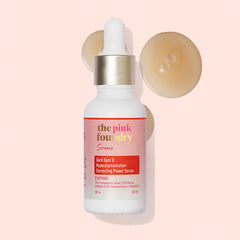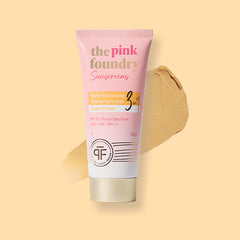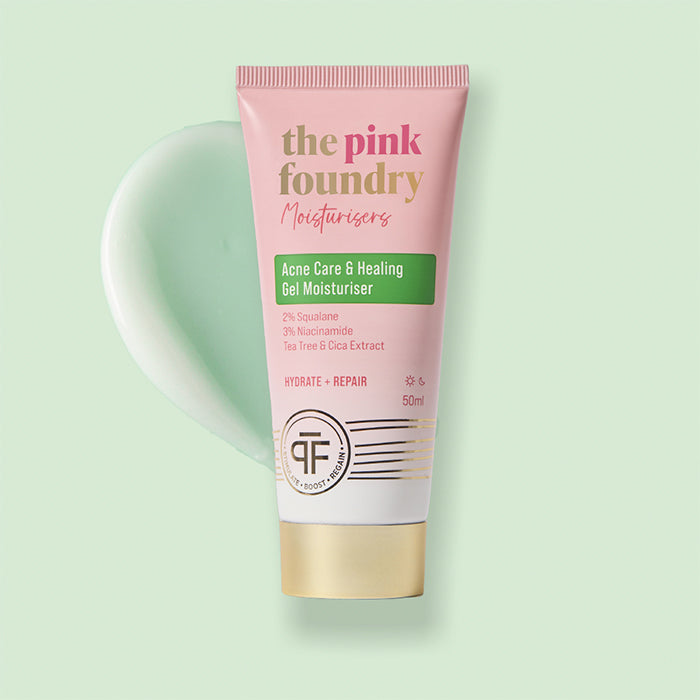Boil vs. Pimple: Know the difference Between a Boil and Pimple
When you notice large bumps on your skin, you consider them to be pimples. But some of them might be boils. You need to compare a boil vs pimple to understand their differences and discover effective methods for their treatment. So, scroll through this article and learn everything that you need to know about boils and pimples.
What is a boil?
A boil is an infected pus pocket within or under the skin. While learning what is a boil, you will realise that it is medically called an abscess. Usually, a boil will start as a small open wound, a mild infection, or an area of redness in a skin gland or a hair follicle.
Within a few days, it will accumulate pus and begin to swell. Eventually, scar tissue will form a painful cavity around a boil. With the boil growing in size, the cavity will continue to expand, and the overlying skin will become red.
What causes boils?
If you are wondering what causes boils, some reasons are as follows:
- Infected or blocked hair follicles (particularly after shaving)
- Bacterial exposure from an open wound like an insect bite or cut
- Skin gland disorders
- Skin infections related to diabetes
A weak immune system can often lead to recurring boils. Sharing personal hygiene items like razors can increase the risk of boils. Eczema and previous boils also increase the risk of getting them.
How to treat boils
If you are wondering how to treat boils, you should know that you can do it at home over a few days. You will have to drain the pus pockets to promote the healing of boils. Covering the boils with a damp and warm cloth multiple times a day will soften the skin and facilitate pus drainage.
If the boil is too large, you will have to visit a dermatologist to get it drained. You will also have to visit a professional when you get multiple boils in one area. Dermatologists usually prescribe antibiotics for large or recurrent boils occurring in sensitive areas like the ears or nostrils.
What is a pimple?
A pimple is a small, localised inflammation occurring in a single oil gland. Individuals develop different types of pimples, like whiteheads, blackheads, and acne. In fact, some people might also get pus-filled pimples on their skin.
Also read: 10 Reasons for Pimples on Face
What causes pimples?
If you are wondering what causes pimples, the answer is blocked pores. The oil glands in your skin secrete excess sebum due to hormonal fluctuations and a multitude of other reasons. This excess sebum might combine with dirt, dust, and other impurities to block your pores and lead to pimples.
How to treat pimples
If you want to treat pimples, you will have to embrace effective skincare products. The first thing to add to your skincare regimen is a cleanser to keep impurities away. You can choose the Clearing & Calming Acne Face Wash to get clear & fresh skin. The cleanser contains potent ingredients that can successfully kill acne-causing bacteria and prevent acne.
At times, the skin starts producing excess sebum to cope with dryness. Therefore, meeting the hydration requirements of your skin with a good moisturiser is essential. You can choose the Acne Care & Healing Gel Moisturiser with Tea Tree & Cica to provide nourishment to your skin without blocking any pores.
If you are looking forward to getting rid of your pimples instantly, you can try the Overnight Acne Spot Corrector. This product is formulated for direct application on your pimples and shrinking them overnight. You can wash your face the next morning and see a considerable reduction in the sizes of your blackheads, whiteheads, and acne breakouts. The product works only on surface/active acne.
Also Read: How to Reduce Pimples On Face Effectively
Boil vs pimple: Difference between boil and pimple
The difference between boil and pimple is often prominent in terms of their location. Boils are more common in intimate areas like your groyne, things, armpits, and breasts. While pimples can occur in different parts of the body, they are typically found on the face, upper chest, and back.
A boil will usually surface on your skin as a red, firm, and painful lump beneath the skin. Pimples can also be red and swollen. But they are likely to be smaller than boils and are not painful all the time.
The size of pimples can range from that of a nail head to a pea. But cystic acne breakouts might be as big as a dime. Meanwhile, boils can grow up to the size of a golf ball and ooze out pus.
Conclusion
Whether you are suffering from boils or pimples, popping or squeezing them is never a good idea. Popping them might push the pus or bacteria into the depths of your skin and worsen the infection. You might end up getting permanent scars or pits on your skin by popping them. Therefore, always go with appropriate skin care products or dermatologist-recommended treatment options to cure your boils and pimples.
FAQs:
1. Are boils and pimples the same?
While boils and pimples might look red and swollen, they are not the same. When they start surfactant, boils and pimples can look the same. But they will eventually start looking and feeling differently.
2. Can I use a face cleanser to treat boils?
A face cleanser aims to remove dirt, dust, and other impurities from your face. As long as you choose a gentle cleanser that doesn’t block your pores, it is good. But if you have boils on your face, consult a dermatologist before applying anything.
What is the difference between a boil and a spot?
A boil is a swollen, painful lump filled with pus that results from a bacterial infection in the hair follicle. A spot, like a pimple, occurs from blocked pores caused by oil, dead skin, and bacteria. Pimples are generally smaller and less swollen than boils. Boils may need medical care if they last long, while spots usually resolve with a proper skincare regimen.
What is the difference between boil and cyst?
A boil is a bacterial infection in the hair follicle or oil gland that creates a painful lump filled with pus. A cyst, in contrast, is a pouch under the skin that contains fluid, keratin, or sebum. Cysts are typically not painful unless they become inflamed, whereas boils may be sensitive and warm to the touch. Boils frequently burst on their own, while cysts might need to be drained or surgically excised.
How to tell if I have a pimple or boil?
Pimples arise from clogged pores due to excess oil and dead skin cells. They often appear on the face, neck and back. Boils are painful, pus-filled bumps caused by bacterial infection in hair follicles. They occur in areas prone to sweat and friction, such as the armpits or groin.
How to get rid of a boil overnight?
You cannot entirely eliminate a boil overnight, but you can encourage healing. Apply a warm, wet washcloth to the boil several times a day to drain the pus. Apply spot treatments with sulphur to shrink the boil. Avoid squeezing as this can spread the infection. For larger or recurring boils, seek medical attention.












